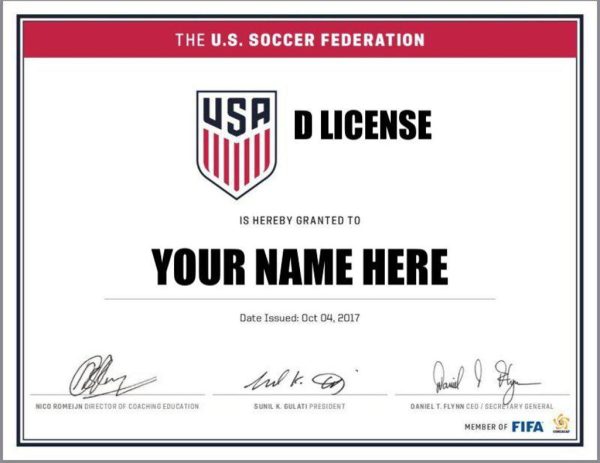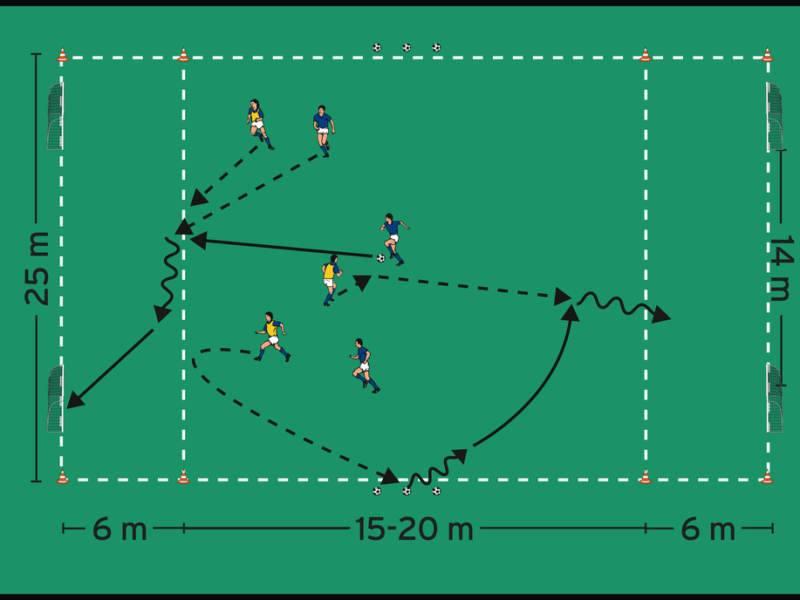You want to become a soccer coach. Maybe you’ve spent years on the field, dreaming about sharing your love for the game.
Or perhaps you’re just starting your journey but feel inspired by the idea of guiding a team to victory. Whatever your starting point, this is an exciting path to pursue and you’re in the right place.
Coaching soccer is about more than drawing up game plans or shouting strategies from the sidelines. It’s about inspiring players, shaping teams, and fostering a love for the beautiful game in others.
By the end of this article, you’ll have a clear roadmap to make this dream a reality.
What Does a Soccer Coach Do?

Before we go into into the “how,” let’s understand the “what.”
A soccer coach is a leader, teacher, and motivator. Your main job will be to aid your players in developing their abilities, building a cohesive team, and strategizing for games. And that’s only touching the surface of it.
Here are what some of your daily duties might include:
- Practice Planning: You design practice sessions to enhance key skills such as passing, shooting, or teamwork.
- Assessment of players: Assessing individual players’ strengths and weaknesses, and then focusing on developing their potential.
- Game strategy: Strategy selection, including formations, substitutions, and in-game adjustments.
- Motivating players: Providing pep talks and building team morale. Ensuring safety: Overseeing conditioning programs and handling injuries.
- Educating players: Teaching the rules of the game, tactics, and mindset for success.
From youth leagues to professional teams, being a soccer coach is demanding yet a very rewarding career.
But how does one get there?
Step 1: Play Soccer-or at Least Understand It Deeply
Playing soccer is not a rule, however, it does give you a leg up.
When you’ve been on the field, you understand the rhythm of the game, the challenges, and nuances in a way that’s hard to get from a textbook.
If you are not a former player, it’s okay!
You can still dive into the game: watch matches, analyze strategies, and study the rules. Online resources are usually a goldmine of information, such as tactical breakdown videos or coaching blogs. The more you know, the better you will be at teaching.
Step 2: Decide Your Coaching Level
Soccer coaching is not one-size-fits-all.
Are you trying to lead a youth team? Or do you dream of coaching at the collegiate or professional level? And they also come with different requirements, expectations, and challenges.
- Youth Teams: These positions are for building skills, sportsmanship, and fun. Excellent for those just starting to coach or who love kids.
- High School/College: A whole different level of competitiveness, tactically and with regard to leadership.
- Professional Teams: The top-tier of coaching, requiring elite certifications, extensive experience, and a proven track record.
Take the time to consider where your passions and skills align best.
CHECK OUT | How to Become a Soccer Scout: Your Ultimate Guide to a Dream Career
Step 3: Get Experience by Volunteering
Before being handed the reins of a team, you must gain some experience. A great way to start is by volunteering to work in local recreational leagues.
Why?
- You will learn how to handle and run practices, and how to communicate with players.
- It’s low pressure to test your skills.
- You will have the opportunity to make connections with people in the soccer community, which is important for your future career.
Step 4: Coaching Clinics
Coaching clinics are the pedagogics crash course. It is full of practical training, tactical insights, and time for networking.
Look for clinics put on by organizations such as the United Soccer Coaches Association or your local soccer league. Many of these programs are targeted for particular skill levels, so you should be able to find one to match your experience.
Step 5: Get Certified
Here is where it gets official. Certifications are the way to get coaching opportunities at every level. In the United States, USSF licenses are available for levels from grassroots to pro.
Certification Tiers:
- Grassroots Licenses (4v4, 7v7, 9v9): Best suited for youth coaching.
- D License: For coaches who coach higher-level youth players.
- C, B, and A Licenses: National, college, or professional team requirements.
- Pro License: The topmost licensed level for elite professional coaching.
This process includes attending workshops, passing exams, and proving one’s capability to design efficient training sessions.
Step 6: Get a Coaching License

Complementing USSF certifications, get a license provided by the United Soccer Coaches Association. They have two major options:
- State Diploma: Ideal for beginners working with kids aged 6-12.
- Regional Diploma: Geared toward coaching players aged 12-19.
These programs are highly respected and offer real value when it comes to developing your coaching skills.
CHECK OUT | Soccer Club Fees: What Parents Need to Know Before Signing Up
Step 7: Consider a Degree in the Field
Not required, but this would make you stand out. A degree in sports science, physical education, or exercise physiology is preferred by many college and professional teams.
If you will coach at a public school, it may even require you to have a bachelor’s degree and teaching certification.
Step 8: Start as an Assistant Coach
For most, this is not very realistic. An assistant coaching position will give you the capability to do all of the following: learn under experienced coaches, understand the administrative side of running a team, and build your resume with tangible experience.
Step 9: Apply for Head Coach Positions
Once you have developed your skills and experience, you are ready to seek out head coaching positions. Use job boards such as the United Soccer Coaches Career Center or job search sites like Indeed.
Networking plays an important role, too-keep in touch with your coaching colleagues and mentors.
What Skills Will You Need to Succeed?
Coaching is not only about knowing the game. In order to be successful, you will need a mix of technical and soft skills:
- Communication: Clearly explain complex concepts and effectively inspire players.
- Organization: Plan practices, track progress, and juggle logistics.
- Patience: Improvement takes time.
- Leadership: Inspire trust and confidence in your team.
- In-depth Soccer Knowledge: The more you know, the more you can teach.
CHECK OUT | 10 Reasons Why Soccer is Ideal for Children with Autism
How Much Money Can You Make?
Let’s talk numbers. Soccer coaching salaries vary wildly based on your level and location.
- Youth Coaches: $18–$22 per hour.
- High School Coaches: $500–$3,000 per season (as a supplement to teaching).
- College Coaches: $47,000–$140,000 annually.
- Professional Coaches: Salaries well into six figures, and the top-tier coaches often make millions.
Private coaching is an option where private coaches charge upwards of an average rate of $60/hour.
Joining Professional Organizations
United Soccer Coaches is just one group that provides resources, networking, and training material. Membership benefits include:
- Liability insurance.
- Discounts on courses.
- Job boards and conferences.
Wrapping Up
Being a soccer coach is not just a profession; it’s a vocation. From leading the youth to strategizing with the pros, it provides an avenue to touch lives and make lasting impressions.
Start where you are, aim high, and then take it one step at a time.
The route to becoming a soccer coach could be challenging; the general experience of coaching, however, is very rewarding.



